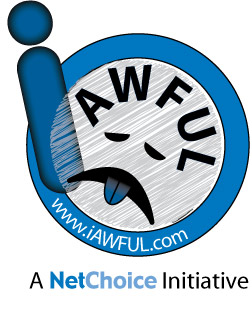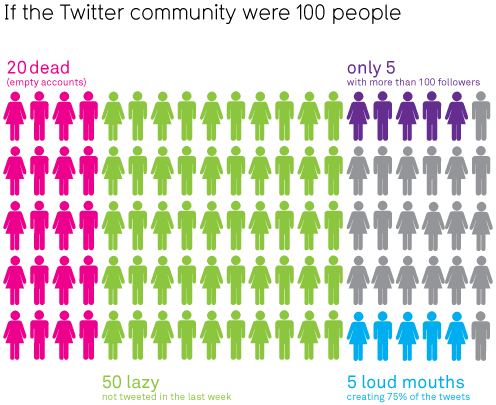Reacting to Apple’s decision to not allow Google Voice for the iPhone, Wall Street Journal guest columnist Andy Kessler complains,
It wouldn’t be so bad if we were just overpaying for our mobile plans. Americans are used to that—see mail, milk and medicine. But it’s inexcusable that new, feature-rich and productive applications like Google Voice are being held back, just to prop up AT&T while we wait for it to transition away from its legacy of voice communications. How many productive apps beyond Google Voice are waiting in the wings?
So Kessler proposes a “national data plan.”
Before we get to that, Kessler complains that margins in AT&T’s cellphone unit are an “embarrassingly” high 25%. He doesn’t point out that AT&T’s combined profit margin — taking into account all products and services — is only 9.66%.
AT&T is actually earning less now than it was legally entitled to earn when fully regulated — 9.66% versus 11.75%.
Don’t fall for the myth that AT&T killed Google Voice.
The truth is regulators are quietly expropriating wireless profits to hold prices for regulated services like plain old telephone service artificially low. Continue reading →
Jonathan Frieden (who runs the e-commerce law blog) has a nice, pithy summary of Section 230:
If the “essential published content” is willingly provided by a third-party, the interactive computer service provider publishing that content enjoys the full immunity afforded by Section 230.
Amen, brother! I noted Eric Goldman’s excellent outline about Section 230 back in June. As Adam has noted, Section 230 is about more than just protecting online intermediaries bottom line or even about freeing them to provide the content and services we all take for granted.
Section 230 is the very cornerstone of Internet Freedom, the law that makes possible Robert Nozick’s “framework for utopias”: Online communities (“utopias”) can flourish in their infinite variety only because those who build, host or enable access to such communities (social network operators, search engines, aggregators, etc.) do not have to worry about legal liability for user-generated content. The fundamental difference between Web 1.0 and Web 2.0 lies in the movement of online speech away from individual websites where the speaker was operator to online speech platforms where the potential number of speakers is essentially unlimited. This ongoing shift makes Section 230 more important than ever.
Never before has it been so easy for users to “vote with their feet,” sorting themselves into communities of their own choosing, and not since the the 1890 Census declared the American frontier “closed” has it been been so easy for the individual to start entirely new communities if they don’t like their current options.
On July 27th, The Progress & Freedom Foundation hosted a Capitol Hill panel discussion entitled “Online Child Safety, Privacy, and Free Speech: An Overview of Challenges in Congress & the States.” The event featured remarks from:
- Parry Aftab, Executive Director, WiredSafety.org
- Todd Haiken, Senior Manager of Policy, Common Sense Media
- Jim Halpert, Partner, DLA Piper
- Berin Szoka, Senior Fellow, The Progress & Freedom Foundation
We’ve just released the transcript of the event, which I have also pasted down below the fold in a Scribd document reader. Also, the audio for this event can be heard by clicking below:
Download mp3
Here is the full event description: Continue reading →
. . . is not in doubt. But as technology advances, it will not be as strong an identifier as it has been up to now. Scientists have demonstrated that they can fabricate it.
I wrote about the qualities of identifiers – fixity, distinctiveness, and permanence – in my book Identity Crisis. The ability to fabricate DNA renders it slightly less distinctive.
 Back in June, NetChoice introduced the iAWFUL (the Internet Advocates’ Watchlist for Ugly Laws) list as part of a broader effort to push back against America’s worst Internet legislation. Two months have passed, and while many of the bills in the top 10 have changed, they remain every bit as AWFUL.
Back in June, NetChoice introduced the iAWFUL (the Internet Advocates’ Watchlist for Ugly Laws) list as part of a broader effort to push back against America’s worst Internet legislation. Two months have passed, and while many of the bills in the top 10 have changed, they remain every bit as AWFUL.
Earlier today NetChoice unveiled the first major update of iAWFUL, which lists the 10 worst Internet bills/laws in America. The updated list includes five new items, with new laws in the top 2 slots.
It’s worth mentioning a few that fell off the list, in large part thanks to the pressure that Internet advocates exerted through iAWFUL:
#2 on the June iAWFUL list was a California bill that would have forced unworkable technical restrictions on the posting of photos to social networking pages. The bill’s sponsor responded by working with Internet advocates to fix problems with the measure.
#3 on the June iAWFUL list was a bill in Connecticut that would have required sales tax collection by out-of-state businesses that pay commissions to in-state affiliates. The Governor heard our concerns about the impact on in-state publishers and school charities, and has thus far kept this measure off the table in budget negotiations.
#5 on the June iAWFUL list was a Connecticut bill to let police conduct searches of homes where goods were being stored by online dealers – without having to obtain a search warrant. Thanks to iAWFUL publicity, this bill stalled in the House.
This is what iAWFUL is all about: creating positive change through informed advocacy.
Now for the bad news. For every measure that fell off the iAWFUL list, we found a truly AWFUL replacement. Continue reading →
Jeff Jonas has published an important post: “Your Movements Speak for Themselves: Space-Time Travel Data is Analytic Super-Food!”
More than you probably realize, your mobile device is a digital sensor, creating records of your whereabouts and movements:
Mobile devices in America are generating something like 600 billion geo-spatially tagged transactions per day. Every call, text message, email and data transfer handled by your mobile device creates a transaction with your space-time coordinate (to roughly 60 meters accuracy if there are three cell towers in range), whether you have GPS or not. Got a Blackberry? Every few minutes, it sends a heartbeat, creating a transaction whether you are using the phone or not. If the device is GPS-enabled and you’re using a location-based service your location is accurate to somewhere between 10 and 30 meters. Using Wi-Fi? It is accurate below 10 meters.
The process of deploying this data to markedly improve our lives is underway. A friend of Jonas’ says that space-time travel data used to reveal traffic tie-ups shaves two to four hours off his commute each week. When it is put to full use, “the world we live in will fundamentally change. Organizations and citizens alike will operate with substantially more efficiency. There will be less carbon emissions, increased longevity, and fewer deaths.”
This progress is not without cost:
Continue reading →
Seems like every week the tech rumor mills unveil some new smartphone that’s supposedly going to give the iPhone a run for its money. Over the past couple years, dozens of advanced handsets have been released with much fanfare — the LG Voyager, Palm Pre, Blackberry Storm, Samsung Omnia, to name a few — but time and time again, we end up with a device that can’t hold a candle to the iPhone’s amazing browser, massive app store, and sleek multi-touch interface.
But all this could change later this year. A number of handsets are due for release on several major networks over the next few months that run on Android, Google’s open source mobile operating system. Android is currently available on only a single device, the HTC G1. It’s a decent phone, but it lacks the polish of the iPhone and is only available with a contract from T-Mobile, which lags behind Sprint, AT&T, and Verizon in terms of 3G coverage.
I’m especially excited about the Android 2.0-based Motorola “Sholes,” a great-looking phone that’s supposedly due for release in November 2009 from Verizon. If rumors pan out, the Sholes should come with a slide-out keyboard, an extremely high-res display, a 5MP camera, and all-around solid specs. Via Android and Me:
Continue reading →
Thanks to Mashable, we clearly see power laws at work on Twitter. While many protest this as evidence of “media inequality,” the “non-tweeting will always be with us” (to paraphrase Jesus’s comment about the persistence of “the poor”)—and this is nothing to get bent out of shape about, as Adam has explained.

Courtesy of Mashable, David McCandless
“We’re at the beginning of an unmanned revolution.” That’s what Gary Kessler, who oversees unmanned aviation programs for the US Navy and Marines, told the AFP.
According to the article, “Robots or “unmanned systems” are now deployed by the thousands in Iraq and Afghanistan, spying from the sky for hours on end, searching for booby-traps and firing lethal missiles without putting US soldiers at risk.” This revolution is at hand because saving the lives of soldiers is very popular, which also happens to be part of a meme that is blocking President Obama’s health care plans.
That is, Americans expect technology to help save lives, even those that are in the most danger (hello robot drones). Any move to limit the use of technology to save lives (i.e., denying high tech care to those deemed “too sick or too old”) is guaranteed to hit resistance.

 Back in June,
Back in June, 

 The Technology Liberation Front is the tech policy blog dedicated to keeping politicians' hands off the 'net and everything else related to technology.
The Technology Liberation Front is the tech policy blog dedicated to keeping politicians' hands off the 'net and everything else related to technology.